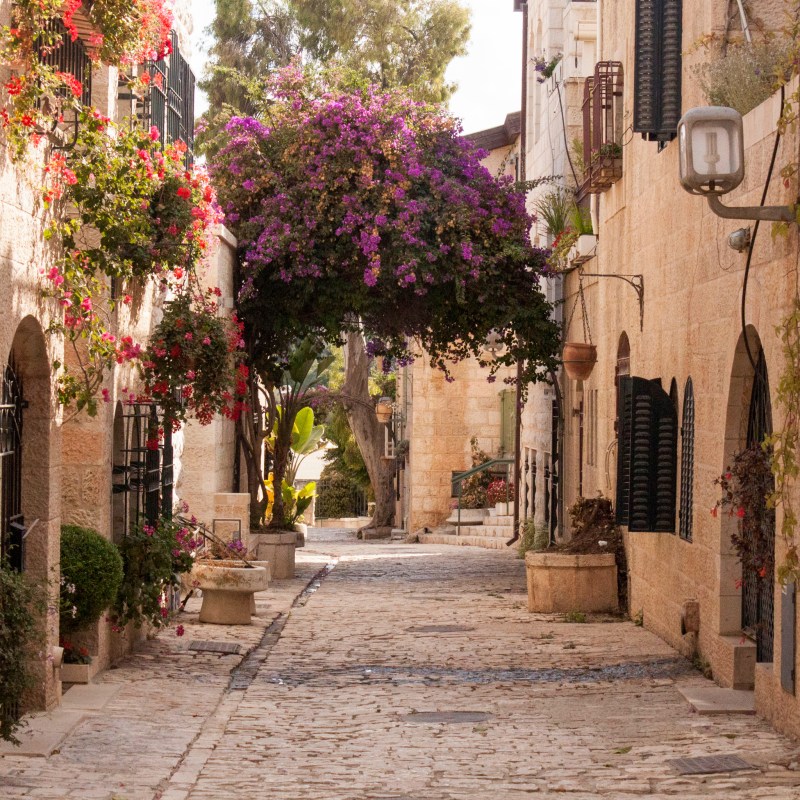
A few years ago, while visiting a small beach town on Mexico’s Pacific Coast, my husband Barry and I discovered a children’s library in the village. Since we planned to stay for several days, we asked the librarian if she’d like us to each give a talk.
Barry, a science writer, gave a presentation on dinosaurs. Judging by the grins on the kids’ faces as they eagerly pored over his iPad slides, the illustrated talk was a huge success. The next day, I led a workshop on freewriting.
“Write down everything you did today from the moment you woke up until you went to school,” I said to the kids in Spanish. One eight-year-old took the assignment very seriously, describing in careful detail exactly how she got dressed that morning and what she ate for breakfast. I like to think that 20-minute exercise planted a seed. Who knows? Maybe she’ll be a writer one day.
Like we did in that Mexican village, you can interact with local people beyond a superficial level by offering your skills while traveling. Often, the opportunities will arise organically when you meet people, ask questions, and see unmet needs in the community. Here are seven ideas to help you contribute in a meaningful and effective way.
1. Milk Your Expertise
Are you a social worker? Graphic designer? Teacher? Whatever your field, chances are you’ll be able to use your skills to volunteer.
Carlisle Douglas, a professional massage therapist, visited a friend living in the village of Teotitlan del Valle in southern Mexico. Using a borrowed massage table, Douglas gave massages to as many villagers as she could fit in during her three-week stay. She always asked for a donation, so there would be a sense of reciprocity. Usually, she would get a box of Jello or some fresh fruit that she’d give to the family she was staying with.
“At one point I was walking down a narrow street and from a second-story window I heard someone whisper Masaje,” she remembered. “It only took two seconds for word to travel in that place!” She received her own massage, too, by exchanging with the village curandera (a healer who uses folk remedies).
2. Talk To Locals And Other Travelers
Three years ago, California resident Joyce Plath signed up for a group camping trip to Ethiopia and Kenya. Afterward, she stayed at a hostel in Nairobi for a few days, where she met a couple from England who lived in a Maasai village doing humanitarian work. The couple had been awarded a grant to design a medical clinic for the village, but neither of them knew anything about architecture. Plath, who has a Masters in Architecture from the University of California, Berkeley, returned a year later and spent a month with the Maasai designing their medical facility. She is still in touch with the British couple.
3. Brainstorm Different Target Groups
What kinds of groups and organizations could benefit from your volunteering? Consider different ages (for example, seniors, parents, teens, kids), professional, educational, and economic groups, levels, genders, ethnic communities, neighborhoods, and animals. Then, approach the places that typically serve these demographic groups — senior centers, schools, hospitals, hostels, clinics, day care centers, and shelters.
I’ve volunteered with very disparate groups, from giving talks on wellness to Mexican working moms (mostly domestic house cleaners) at a low-income rec center to presentations on interview skills and resume writing to graduating college seniors. Other people I know have taught art, dance, yoga, Pilates, and Zumba.
While visiting Asia between jobs, Beth Shipley saw a notice at her hostel in Bangkok about a nonprofit, organized by families of foreign inmates, that was recruiting visitors to offer support to lonely and forgotten expat prisoners. Shipley took an hour-long boat trip upriver to a maximum-security prison where a 30-year-old British man was serving a nine-year sentence for drug-related charges. Shipley brought him food, cigarettes, and the chance to talk. The former felon, now pardoned, gives motivational talks in England on faith and redemption.
4. Use Your Native English
Volunteering doesn’t require the ability to speak the local language. In Arbois, a town in eastern France, Barry and I spoke to French middle-schoolers in English about life in America, after which we had an elegant French lunch in the teachers’ dining room. It was so much fun that we did it again a few years later in Trabzon, a city on the Black Sea in eastern Turkey. After our talk on American culture to the ESL students, we all went out for a beer — where the real English practice happened.
In 2005, Mandy Devons, a retired California school teacher, was enrolled in Spanish classes in Oaxaca, Mexico. After school one day, she noticed a storefront offering English lessons to street children. When the receptionist told her the teacher was on vacation, Devons asked if she could teach the class that week.
“Do you speak Spanish?”
“No, but I’ve taught English to Laotian and Hmong children and I don’t speak those languages.”
“We had the time of our lives!” said Devons. “I taught six- to 18-year-olds using objects and calendars and coins and drawing. I’d love to go back!”
5. Consider The Environment
Whether you’re at a farm, a forest, a small town, a city, or a beach, the local habitat and its creatures could probably use your help.
Writer/photographer Simona Carlini and her husband first went to Little Cayman for their honeymoon and have since returned several times, often helping with garbage clean-up campaigns organized locally. For Carlini, the clean-up work brought a poignant discovery.
“This wasn’t trash generated on the island, which is small and sparsely populated, mostly visited by divers, but rather dumped elsewhere and brought there by ocean currents,” she said.
While living in Guatemala City, Marion Pritchard regularly volunteered at an animal shelter an hour from her home. The shelter was rustic and poor, with over 80 cats in the area where she worked and another 10 in the feline leukemia section. Pritchard cleaned the cat shelter twice a week and took the dirty blankets home to wash, returning with fresh bedding, cleaning supplies, food, and treats.
6. Ask If In Doubt
Once, while visiting an American friend living in Jerusalem, I accompanied him to a pioneering hybrid Israeli-Palestinian school where he worked. Although I had been eager to see the school, the day itself was frustrating because I was sitting around not doing much, with no clear role. That afternoon, noticing that dishes had piled up in the staff kitchen, I asked my friend if I could help out by washing them.
Good thing I ran it by him! He said it would be inappropriate. As a guest, it wasn’t my place to wash the dishes. Worse, it would make the director lose face because it would imply that he didn’t have the leadership skills to get his staff to do the job.
Like many Americans, my cultural style — practical, action-oriented, and non-hierarchical — isn’t universal. What may seem like an obvious solution to an outsider can have unintended impacts.
7. Back Home, Share Your Experiences To Encourage Others
Sometimes the biggest gifts we have to offer are not with the locals, but with our fellow citizens after we return. Offering a presentation at the public library about your experiences abroad, or writing an article for your local newspaper, are ways to dispel stereotypes and open vistas to armchair travelers.
The world is filled with problems — but it’s also filled with talented, motivated, compassionate people. Wherever you find yourself, once you find a match between your personal skills and the needs that exist locally, you’ll be able to harness your creativity and expertise to make a difference to those around you, enriching your own travel experiences as you do.
Traveling can be an uncomfortable experience if you don’t feel prepared. Our list below offers some helpful advice!
